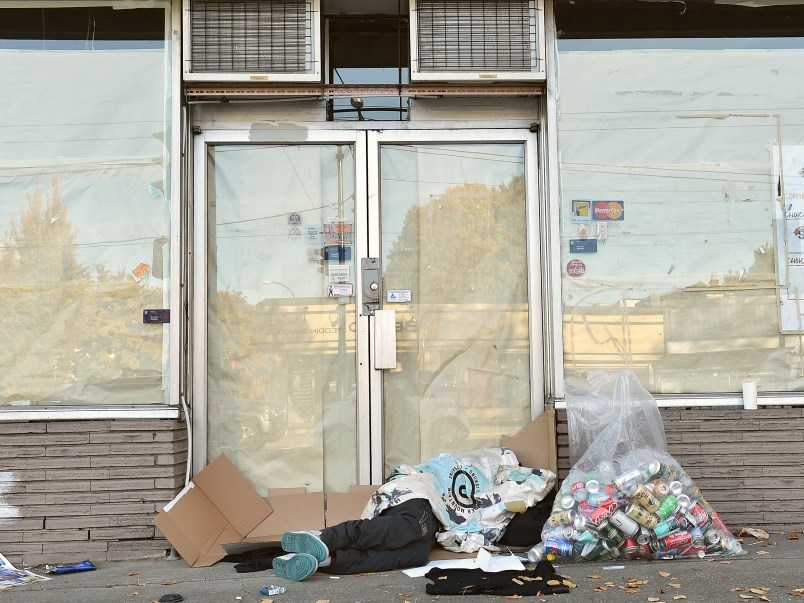Each new year offers the opportunity to look back and look forward and, for some of us, a compulsion to make resolutions and predictions
I expect 2020 to be just like the past year, but more so.
Once again, addressing homelessness, the opioid crisis and deteriorating conditions in the Downtown Eastside will be top of mind for many.
Worsening housing affordability will continue to dominate social and mainstream media and remain a hot topic at parties and dinner conversations.
Debates over neighbourhood planning will continue, especially if Vancouver’s mayor and “abundant housing” activists continue to believe housing affordability should trump all else.
Let’s take a closer look at these three issues and others that will need our attention in the coming year.
Due to poor planning, insufficient affordable housing, poverty, mental illness and drug addiction, conditions in the DTES worsened in 2019. They will likely continue to get worse as long as each level of government looks to the others to act.
In the coming year, we need to offer a broader range of accommodation options for those suffering from mental illness, including institutional care. We also need to expand family reunification programs, employment and grooming services, and create more places for people to congregate during the day.
We also need to prevent the expansion of homelessness into other neighbourhoods, bringing with it the despair and unsanitary conditions increasingly found in the DTES.
One just needs to visit neighbourhoods in Seattle, Portland and San Francisco to see what could happen here.
When it comes to housing affordability, while rezonings that double or triple existing densities will result in some moderate rental suites, in the absence of overall planning, future projects will become more expensive and the quality of the urban environment will decline.
For one thing, the city will not be able to provide adequate physical and social infrastructure. This is already happening along the Cambie Corridor where new developments are now subject to an additional tax to pay for upgrading sewers and water.
Vancouver planners used to require 2.75 acres of new park space for every 1,000 new residents. While the mayor and others support higher density rezonings along Broadway and elsewhere, where are the additional parks? Or has the city decided this park space requirement is no longer applicable?
Many architects and planners privately worry about excessive densification in the name of affordability. While we are embarking on a city-wide planning process, we need more public discussions on when is big too big?
Meanwhile, expect an increasing number of longstanding Vancouver households to cash out and move to Victoria or elsewhere around the province.
In 2020, we need to address the negative impact B.C.’s property assessment system is having on the character of our commercial highstreets since, currently, properties are assessed on their highest and best use, not current use.
As a result, excessive property taxes are forcing out many beloved, legendary businesses. While property assessments will come down in 2020, taxes will not. Indeed, taxes will be higher once the seven per cent property tax increase kicks in.
One solution is to offer tax relief to longstanding businesses, regardless of the value of the property as a redevelopment site, like the provisions of Section 19(8) for longstanding residential property owners.
B.C. Assessment should also review its residential assessment system in 2020. Rather than calculate taxes solely on property value, municipalities should apply different mill rates for single-family and multi-family properties. While this will increase taxes for owners of detached dwellings, it will reward those choosing more sustainable housing forms.
In 2020, the city’s so-called empty home tax will increase to 1.25 per cent since the mayor promised during the election campaign it would triple. I continue to label it a “so-called empty home tax” since it also applies to residents’ homes that are regularly occupied, but less than six months a year.
Many of these second homeowners have now sold their homes and moved into rental accommodation, where they can live three or four months a year without paying the tax. Expect others to take the city to court in the coming year.
Taxing our way to housing affordability is like bombing for peace.
Let’s hope politicians stop doing this in 2020.



